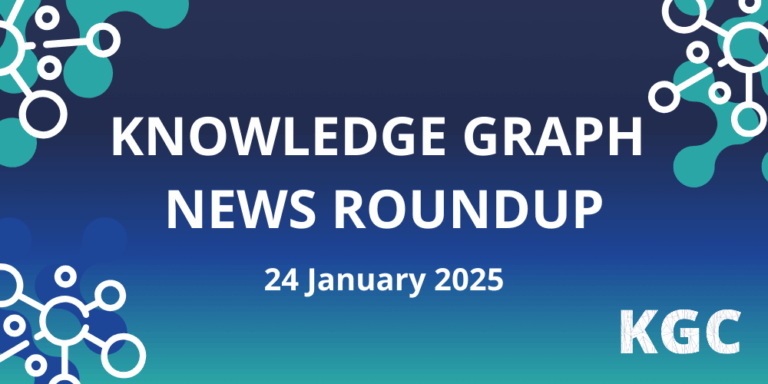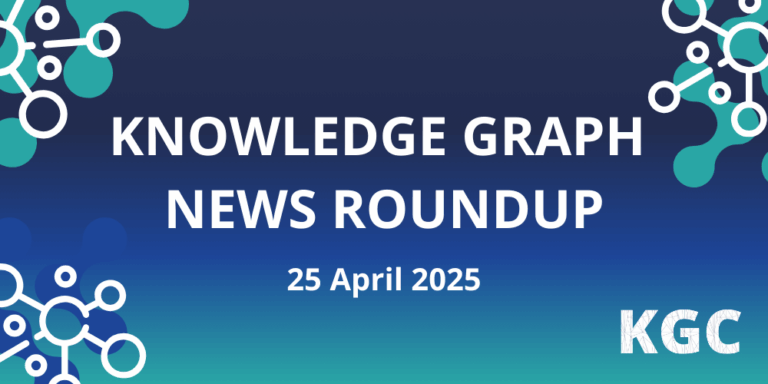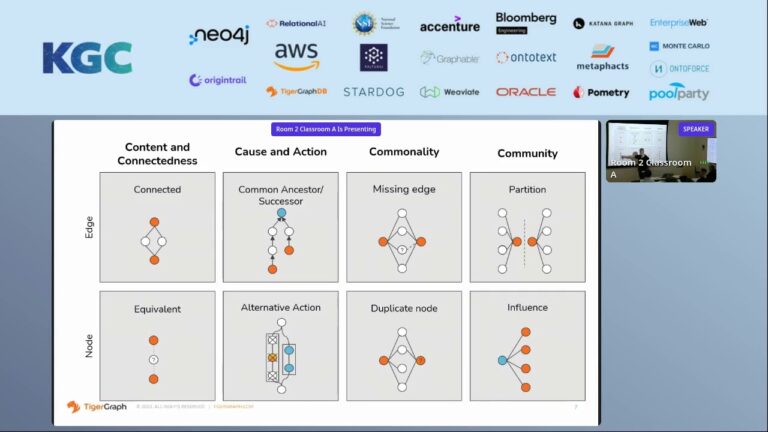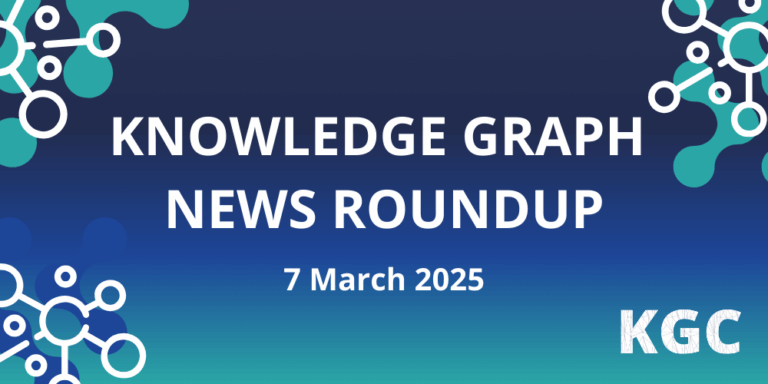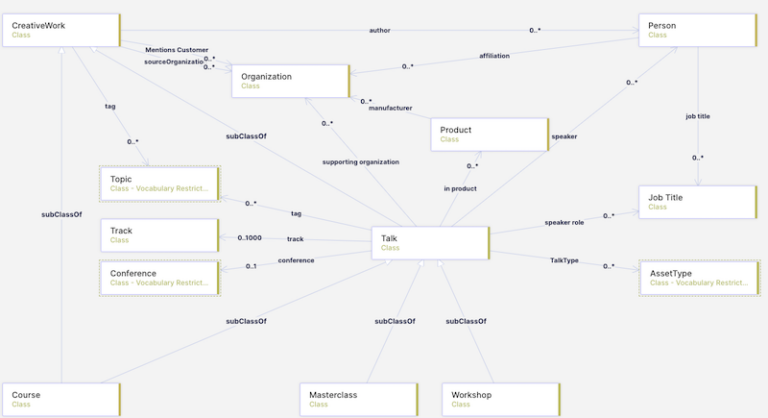KGC 2024 Session: Unlocking the Power of Knowledge Graphs in Data Isolation
Please enjoy this talk “Unlocking the Power of Knowledge Graphs in Data Isolation,” from the Knowledge Graph Conference 2024 given by Richard Beatch, Semantic Modeling Executive Director, and by Matthew Rawlings, Data Strategy & Head of Product, both from JPMorganChase.
Talk description:
Many industries are regulated to varying degrees. Regulations frequently impact how data is stored, accessed, and generally managed. In particular, privacy restrictions can place severe restrictions on what data can be exposed, to whom, and under what circumstances. This creates an interesting challenge in the knowledge graph space.
Ideally, a knowledge graph would be populated with the actual data. In a production environment, for example, one might include data about the number of items produced over a set period of time at specific locations. Generally, this type of data would not be problematic in terms of access rights within a company. Thus, setting up a knowledge graph that contains this data would not be problematic from a compliance or data privacy perspective. In an industry where there is data about human beings, e.g., addresses, ages, account balances, etc., the situation is very different. The general approach to such data is that only people with appropriate credentials and a demonstrated business need to access the data can have access. To support this, the default approach to such data is, understandably, to err on the side of denying access if there is any possible question around access. Because of this, exposing such data in an indexed knowledge graph is pretty much out of the question.
To address this, the typical solution is to rely on metadata. Luckily, there are many excellent standards and tools available for this. Of note, the DCAT standard provides an excellent model that can be leveraged for this purpose. Such metadata provides, among other things, good descriptive metadata about datasets, and other items to enable users to find what they need. Such metadata does not, however, address the details of the actual data in a granular manner. For example, if one wanted to locate datasets that include account balances cross-referenced against postal code, a description of the data set might help, but it might not. What is needed is a description of the data items in the dataset that provides the necessary detail(s) about the dataset to enable such granular queries. In this presentation, we walk through an enhanced metadata-driven solution to this data governance challenge.
Technical topics covered:
- Graph Theory
- Knowledge Representation
- Querying Knowledge Graphs
- Knowledge Graph Visualization
- Metadata and Annotations
Do you enjoy talks like this one? Subscribe to the KGC newsletter and stay up to date with everything happening in the world of knowledge graphs, AI, and semantic tech.
***

